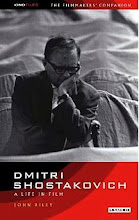These are obviously experimental in their own ways but Benedek Fliegauf’s new film Milky Way (2007) pushes things even further. Its 82 minutes comprise just ten shots, each around the same length. So far, so ‘normal’: technology has made feature-length ‘single-shot’ films possible, most famously Sokurov’s Russian Ark (2002), but I’d also recommend Salvatore Maira’s Valzer (2007).
But Fliegauf decides to restrict himself even further. The ten shots take us from night to night through a single day, the camera never moves, and most of them are horizontally bisected by a flat horizon (thoughts of the Hungarian plain). So, there you have it. Ten tableaux where any interest is completely within the frame. The only music you hear is from the scene itself. Oh – and there’s no discernible dialogue, either. More Dogme than many Dogme films, Fliegauf has chosen not to go for accreditation.
We start with a static scene. Something happens. The original set-up returns, but with a subtle difference.

But what might seem dauntingly minimalist is in fact incredibly engaging. Some of the scenes are positively action-packed, and even those that aren’t reverberate with meaning, filled with often wry, but occasionally sad reflections on everyday life and human ambitions and failings.
In the mournful opening scene a lonely wind-farm turbine, with its flailing arms, stares balefully back at us through the pre-dawn gloom, reminding us that we aren’t the only watchers on this planet.
Next: a camper on a windy hillside goes for an early morning pee only to see her tent blown away.
 Three pensioners – two men a woman – float in a swimming pool, taking refuge from the sun’s heat. After a while, one of the men lazily swims over to the woman. While they make love, the other man takes no notice. They part and the initial tableau returns. Then a young man swims by oblivious to these goings-on, forcing us to question society’s youth-ophilia.
Three pensioners – two men a woman – float in a swimming pool, taking refuge from the sun’s heat. After a while, one of the men lazily swims over to the woman. While they make love, the other man takes no notice. They part and the initial tableau returns. Then a young man swims by oblivious to these goings-on, forcing us to question society’s youth-ophilia.  A wintry tree stands next to a cairn-like pile of rocks. Two BMX-ers appear and bounce their way over it (after all, why simply ride around it?) then disappear down the hill. The scene is again empty. In the tree a crow’s nest mysteriously catches fire.
A wintry tree stands next to a cairn-like pile of rocks. Two BMX-ers appear and bounce their way over it (after all, why simply ride around it?) then disappear down the hill. The scene is again empty. In the tree a crow’s nest mysteriously catches fire.The highpoint is a frankly hilarious scene about a bouncy castle, finely balancing hope and joy with disinterest and failure, and the film ends, again at night, with two silhouetted kids deliriously break-dancing by the light of a chemical factory.
It might sound wilfully quirky but Milky Way is a delightfully humane work, looking at homo sapiens with an anthropologically objective, yet affectionate eye.
You can catch Milky Way at the Barbican on May 10, 2008.
The Round Up (which I'll be blogging about in a few days) is at the Barbican on April 28 2008.

No comments:
Post a Comment